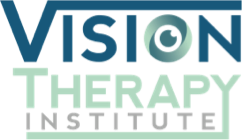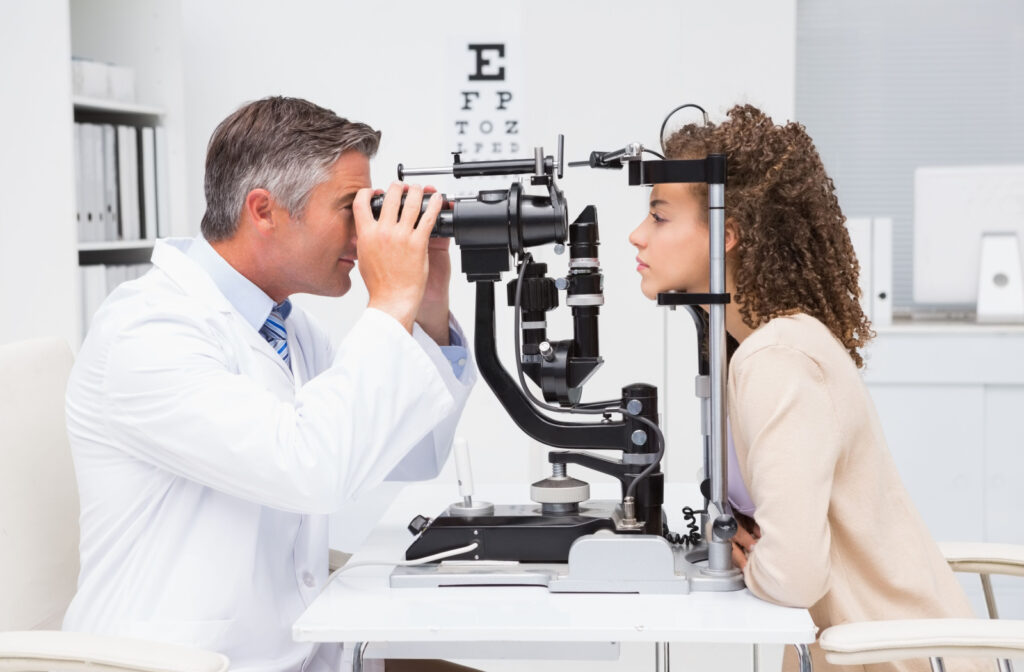No one wants to consider the possibility of developing an eye disease. But unfortunately, it can happen to anyone. However, getting comprehensive eye examinations as recommended by your optometrist and the American Optometric Association (AOA) provides the most hope of early diagnosis and avoiding long-term complications or vision loss from various eye diseases and conditions.
Eye exams are essential for detecting eye diseases such as:
- Glaucoma
- Dry eye
- Age-related macular degeneration (AMD)
- Cataracts
- Cancer
- Diabetes
Your age and factors like family history or lifestyle may increase your risk for certain eye conditions. Your eye doctor will thoroughly check your overall eye health during a comprehensive eye exam and may pay particular attention to specific areas of your eye where eye diseases can develop.
Why Do You Need a Comprehensive Eye Exam?
We go to the doctor for medication or treatment when we’re sick. But many eye diseases develop with little to no signs. And when they cause complications like vision loss, it’s often irreparable. Comprehensive eye exams are essential for maintaining clear vision and healthy eyes.
Our vision can also change over time because of refractive errors. Your eye doctor can keep your eyeglass prescription up-to- with regular eye exams.
In addition to comprehensive eye health exams, our doctors will also assess aspects of visual function to ensure your visual system is working optimally. This can rule out conditions like binocular vision dysfunction and persistent postural perceptual dizziness.
Eye Exam Frequency
The AOA provides guidelines for comprehensive eye exam frequency. They’re broken up by age and general risk factors, but 1 to 2 years is the recommended frequency for most people.
Most eye doctors adhere to these recommendations, but they’ll consider your situation, vision needs, and overall eye health when recommending how often you should see them for an exam.
Diseases That Can Be Detected During an Eye Exam
Your eye doctor can determine if you have a refractive error and whether you need prescription glasses or contacts. But they’ll also check your eyes for signs of common diseases or conditions.
Dry Eye Disease

Dry eye is a common condition affecting many Americans. It doesn’t typically result in severe complications like vision loss, but symptoms can be chronic and irritating to the point of affecting your daily life.
The 2 main types of dry eye are aqueous deficient dry eye (ADDE) and evaporative dry eye (EDE). ADDE is caused by inadequate tear production affected by age, medication, or other health problems. EDE is caused by an imbalance in the tear film mixture, causing premature evaporation of the tears. Meibomian gland dysfunction is a leading cause of EDE.
Glaucoma
Glaucoma is a group of eye diseases that damages the optic nerve, leading to vision loss. Many types of glaucoma are characterized by increased eye pressure, except for normal-tension glaucoma.
Glaucoma often progresses with little to no symptoms. But as the optic nerve sustains damage, you may notice your peripheral vision start to darken. If left untreated, glaucoma can lead to blindness.
Cataracts
Cataracts are an age-related condition that affects more than half of Americans over 80, but injury or surgery can also cause a cataract to develop. A cataract is the clouding of the eye’s natural lens. Symptoms of a cataract are blurry or hazy vision and colors becoming less vibrant.
Surgery is the only way to treat a cataract. Fortunately, it’s a safe and effective procedure.
Age-Related Macular Degeneration
AMD is the leading cause of blindness in older adults. It has no cure, and vision loss is permanent. It’s important that your eye doctor diagnoses AMD early so precautions can be taken to slow ITS progression and prevent blindness.
There are 2 types of AMD: wet and dry. Dry has several stages and typically progresses over several years with little to no symptoms. But late-stage dry AMD and wet AMD are both serious and require intervention to prevent blindness.
Diabetes & Retinal Detachment
If you have diabetes, your eye doctor will likely want to perform an annual diabetic eye exam to closely monitor your eyes for signs of diabetes-related conditions such as retinal detachment or diabetic retinopathy.
Additionally, your optometrist may be able to detect diabetes or prediabetes during a comprehensive eye exam.
Cancer
Most people probably don’t go to the eye doctor thinking about the possibility of cancer. Not only can an optometrist detect eye cancer during an eye exam, but they can also detect skin cancer or potentially cancerous growths around the eye.
Book Your Next Exam at the Vision Therapy Institute
Don’t focus on the problems that can happen with your eyes or vision. Focus on the hope that comprehensive eye exams can provide. The sooner your eye doctor can diagnose a problem, the sooner they can provide treatment to prevent vision loss or permanent damage.Call us at the Vision Therapy Institute and schedule your next exam. Our team can get you in to see one of our experienced optometrists.





